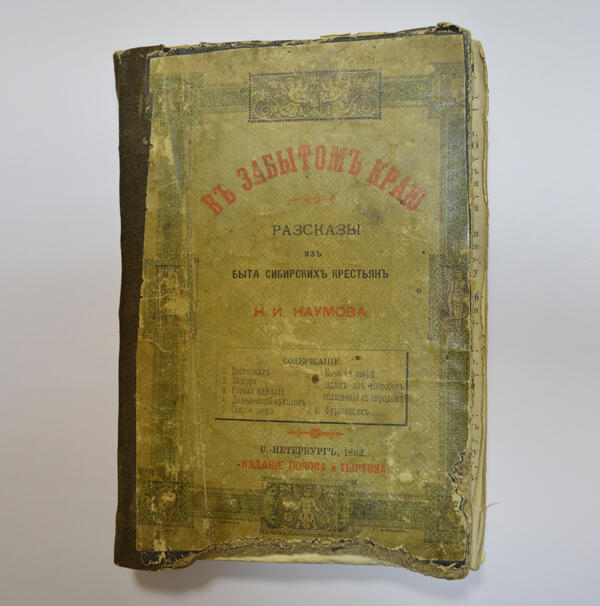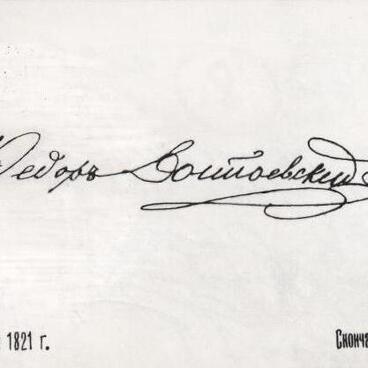Writer Nikolay Naumov (1838–1901) became a part of the literary history of the Narodnik movement due to his Siberian motives. He was born in TobOlsk. In 1850, he entered the Tomsk boys' grammar school, but due to financial trouble he could not complete the course. After the military service in Omsk, he became a volunteer at St. Petersburg University, and from 1859 he began to issue his works in local publications.
He wrote his first short story ‘An Occasion in a Soldier’s Life’ under the pseudonym Korzunov. It was published in 1859 in the Military Anthology edited by writer NikolAi ChernyshEvsky. His major works were created in the 1870s. He wrote mainly about the life of the Siberian peasantry.
He wrote his first short story ‘An Occasion in a Soldier’s Life’ under the pseudonym Korzunov. It was published in 1859 in the Military Anthology edited by writer NikolAi ChernyshEvsky. His major works were created in the 1870s. He wrote mainly about the life of the Siberian peasantry.
In 1861, he took part in student riots in reaction to the reforms in the Russian Empire. Later, he was expelled from the university. He was arrested, but soon released due to lack of evidence. After that, Naumov was appointed Commissar for Peasant Affairs in Siberia.
Having returned to Siberia in 1863, he held minor positions in government institutions. During this period, his works were published in the Sovremennik magazine. He was in close relations with ethnographer Grigory Potanin and writer Nikolai Yadrintsev, still never sharing their views on the special social and cultural mission of Siberia.
Between 1868 and 1870, Naumov worked as a district assessor of the Kuznetsk court, served in Mariinsk and Tomsk, and visited Tisul and Osinniki. Primarily, the writer’s works considered the life of the Siberian peasantry after the reform of 1861. Critics believe that the writer shared the Narodnik views of the peasant community. His most famous works are the collection of short stories ‘The Power of Straw’ (1874) and collections of essays ‘The Web’ (1880), ‘Mountain Idyll’ and ‘Sarbyska’.
Literary critic Mary Kushnikova wrote about the works of Nikolai Naumov, ‘He seemed to come to these lands to replace Dostoevsky who had just left Siberia in order to continue the latter’s observations from his own individual point of view’.
A collection of Naumov’s works in two volumes was published in St. Petersburg in 1897. He died on Nikitina Street in Tomsk. The writer was buried at the cemetery of the St. John the Baptist Monastery.


